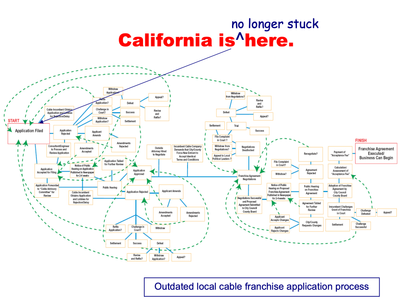
Building the Certified Entrepreneurial Advisor Program
In an age where niche expertise reigns and entrepreneurship is booming, a father and son set out to redefine how small business advisors are trained—and more importantly, how they’re seen.
The Certified Entrepreneurial Advisor (CEA) Program was born out of a deeply felt market need. For decades, small businesses have relied on a patchwork quilt of advisors—CPAs, attorneys, insurance brokers, marketing consultants—each with deep knowledge in their silo, but rarely with cross-disciplinary fluency. As anyone who’s ever tried to run a business knows, it’s rarely one issue that breaks a company—it’s the intersection of issues.
My father, Carl Heintz, a CPA of over 40 years, knew this problem intimately. I had seen it too, from the perspective of a consultant and corporate executive. We both believed that small business advisors needed more than technical skills. They needed a system—a holistic framework—that would equip them to see the big picture and act as true entrepreneurial guides.
The Vision
The idea was straightforward, even if the execution wouldn’t be: create a rigorous, practical certification for small business advisors modeled loosely after the CFP (Certified Financial Planner) designation, but rooted in the real-world challenges of Main Street, not Wall Street.
The CEA would cover 12 core areas—from accounting and finance to leadership, marketing, risk management, and law. It would be delivered through online modules, accessible anywhere, built for working professionals. The format would be user-friendly, but the curriculum uncompromising.
We designed the program with dual benefits: to fulfill continuing education (CPE) requirements for existing professionals, and to offer them a new credential that would build credibility, deepen client trust, and allow them to command higher fees.
The Build
We bootstrapped from day one. No venture capital. No grants. No external investors. The entire platform—video content, LMS, curriculum, quizzes—was produced between our two homes, one course at a time. Carl built the curriculum and recorded the lectures; I managed production, operations, and marketing.
The business model was simple: subscription-based access at $29 or $39/month, depending on feature level. Upon completion, users would pay a modest license fee to use the CEA designation. The math was conservative: break-even at 400 users, profitability well before 1,000.
As we launched, we saw immediate validation. Emails came in. Professionals who were tired of dry, technical webinars praised our practical, story-driven courses. Others saw the CEA as a way to pivot their careers into small business consulting. A community started to form.
Challenges We Faced
We were entering a crowded market. Over 2,000 registered CPE providers exist in the U.S. alone. Titans like Thomson Reuters, Western CPE, and the AICPA had brand dominance. But what they didn’t have was focus. They didn’t have a certification.
We focused on our edge:
- Hyper-focus on small business advisory
- Engaging, high-production video content
- A sense of identity and mission: becoming a CEA meant joining something bigger
Yet, the hurdles were real. Gaining CPE approval from organizations like NASBA required exacting compliance. Marketing in a noisy world was slow and iterative. And we had to do all of it while managing full lives outside the business.
What We Learned
We learned that:
- Niche beats general every time – Our strength wasn’t trying to be all things to all people, but being the onlything to the right people.
- Credentialing is about signaling, not just learning – Professionals wanted more than knowledge; they wanted proof.
- The market will validate you if you solve a real pain point – Our early adopters stayed, paid, and spread the word.
- Education is a relationship, not a transaction – Our community forum, masterclasses, and ongoing CPE updates became retention tools and trust builders.
- People want to feel part of something – The CEA became more than a credential. It became an identity.
Twelve More Lessons I Carry With Me
- Content matters—but story matters more. Dry compliance videos abound. But people engage when they see themselves in the material.
- Never underestimate the complexity of the simple. Our subscription model was straightforward, but managing churn, support, and delivery required constant tuning.
- Production value builds credibility. Even a homegrown product can look premium if you invest in quality.
- Everything is copy. Emails, course descriptions, quiz language—every word is a chance to clarify or confuse.
- Focus on “painkiller” features, not vitamins. Advisors don’t want fluff—they want help solving real business problems their clients face.
- Membership is more valuable than access. A monthly subscription works better when it’s tied to identity, not just utility.
- Credibility compounds. Each new success story, review, or endorsement strengthened our position.
- Certifications are gatekeepers. People respect initials after your name—CEA gave professionals a way to stand out.
- The regulatory path is part of your moat. Complying with NASBA and state rules wasn’t just required—it protected us from fly-by-night competition.
- Good advisors want to be great. And they’re willing to invest the time and money to get there.
- Start scrappy, but build like you’ll scale. Our processes, file structures, and naming conventions made growth easier.
- Don’t wait for perfect. Launch with what you have. Iterate in public.
The Future
The CEA and small business institute was a labor of love, a professional experiment, and a real contribution to the advisory space. It was about making Main Street matter again. And at its heart, it was about teaching others what my father taught me: that true wisdom lies at the intersection of disciplines, and that great advisors don’t just give answers—they shape futures.

To learn more about the Certified Entrepreneurial Advisor program, visit ceanow.org.
Become a subscriber receive the latest updates in your inbox.






Member discussion